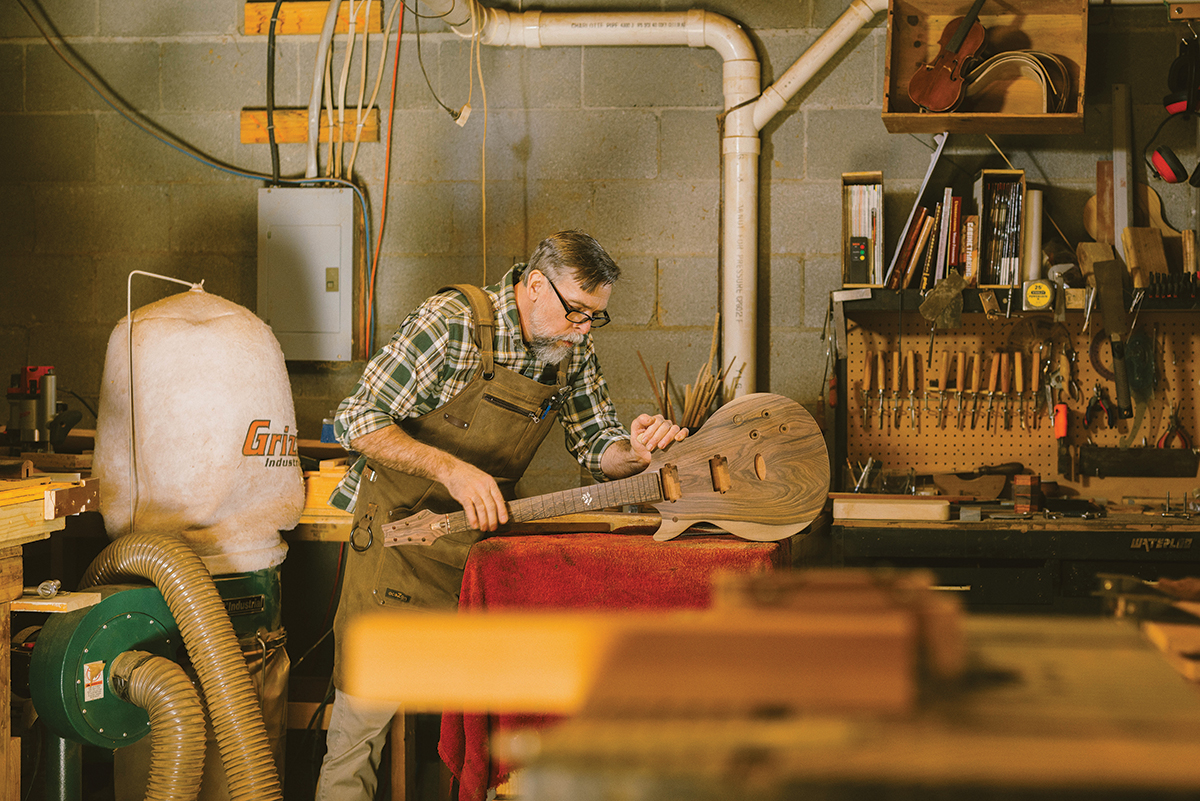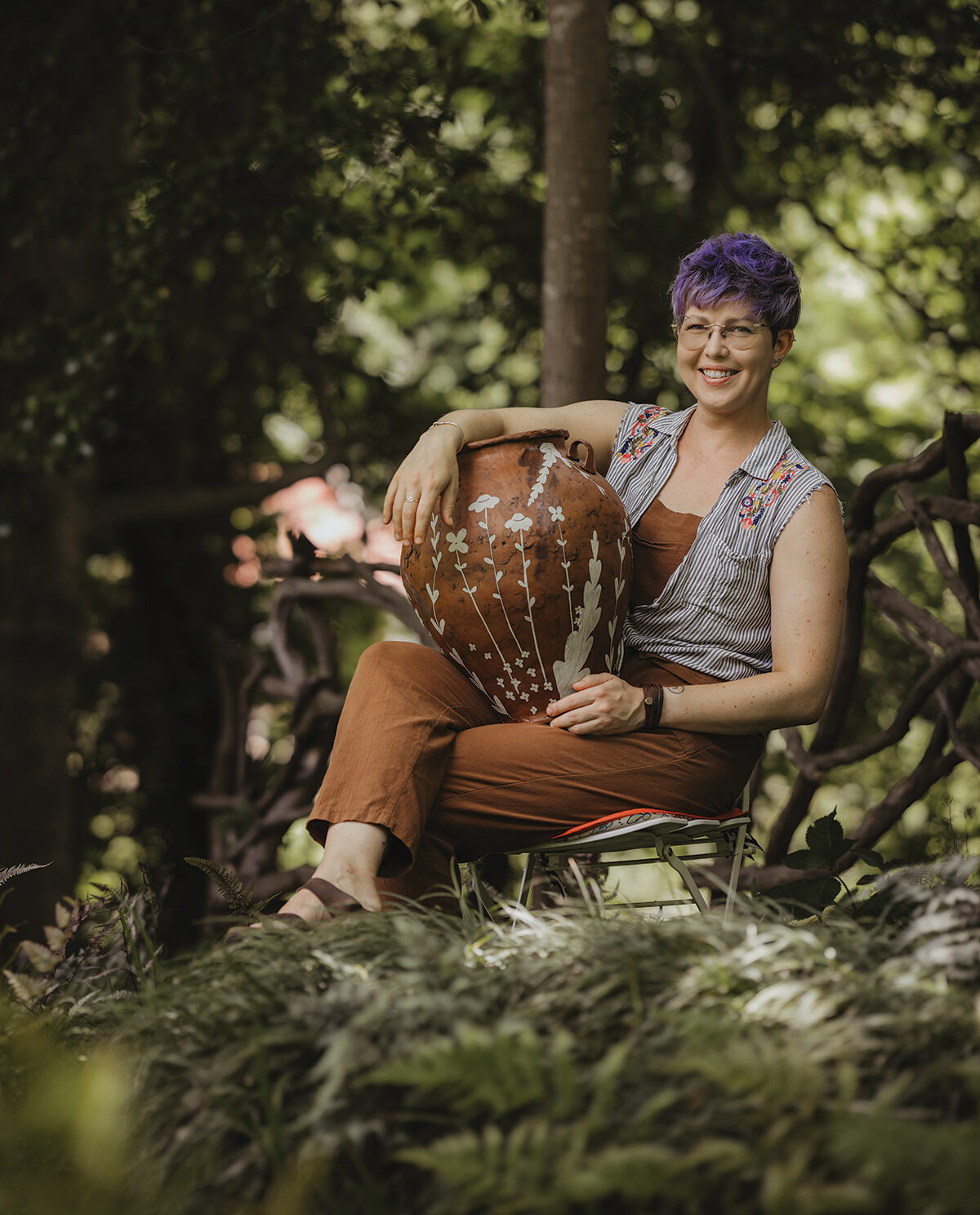Workshop tests the range for aspiring luthiers

Out of the gift shop, into the wood shop
Michael Burger shows how to craft a resonant tenor ukulele.
Portrait by Evan Anderson
In March, Michael Burger, who’s been a certified luthier for seven years, will teach an intensive 10-day course on how to construct a tenor ukulele. The classes are in partnership with Tryon Arts and Crafts School — a nonprofit venue devoted to promoting heritage and contemporary art-making practices.
“My goal is to give you enough basic hands-on knowledge and experience to determine if being a luthier is something you want to continue to do,” Burger says. Students will be provided all necessary materials including two complete full-scale mechanical drawings, and will learn a variety of woodworking and luthier-specific skills such as wood bending, precision measuring and carving, fret slotting, and hand tooling.
As far as prerequisite woodworking skills go, Burger says a modicum of experience will help. “If you’ve ever built a birdhouse, you might find it fun — and a challenging step up.”
Burger emphasizes that the instrument being built isn’t what he refers to a “gift-shop ukulele,” but is, instead, a much larger and more sophisticated style. “The size of a tenor ukulele is a little smaller than a parlor guitar,” he explains, “and is much more enjoyable to play.”
While they’re suitable for players of any experience level, tenor ukuleles are often preferred by professional musicians because the larger size produces a louder sound with deeper and fuller warmth and resonance. They are also well suited for players who use a fingerpicking style, thanks to the slightly wider spacing between the frets.
Students will build their ukes and refine their skills using kits Burger created from scratch, based on instruments he’s made in the past. He’s already tested the kits by building at least two instruments from them, and reports that they sound great. Among the woods he selected are maple, walnut, white oak, and sapele.
The trickiest part of the build is the wood-bending process. The wood must be soaked overnight, dried out, bent while it’s still damp, clamped into a form, and left for a few days so that it won’t revert to its original unbent shape. If the timeline is rushed, the results can be catastrophic. But only after that process is completed can the instrument building begin, so that’s an issue Burger considered and solved in advance.
“There just isn’t time for them to do their own bending in just ten days,” Burger explains, “so I already bent the wood for their ukulele kits and on the first day I plan to do a bending demonstration, to show them what it’s all about.
“I’m really excited to share what I know, and this will be a learning experience for me, too. It’s going to be hard to do it all in only 10 days, but this is a build I’m pretty familiar with. I’ve done an awful lot of preparation.”
“Build a Tenor Ukulele With Michael Burger” happens Wednesday, March 2 through Friday, March 11 at Tryon Arts & Crafts School (373 Harmon Field Road, Tryon, 828-859-8323). For more information, see tryonartsandcrafts.org. Also: burgerguitarworx.com and on Instagram: @burgerguitarworx



